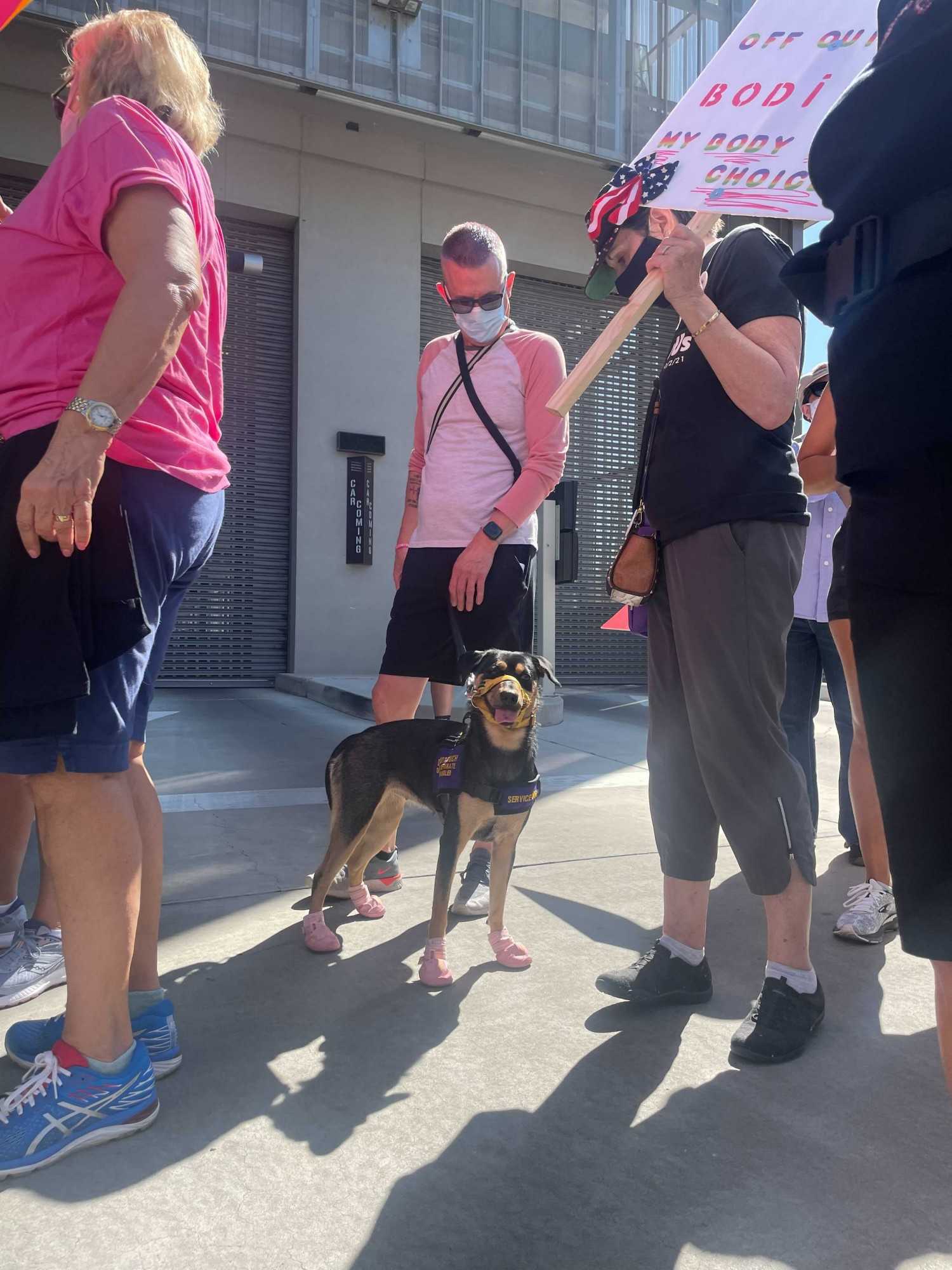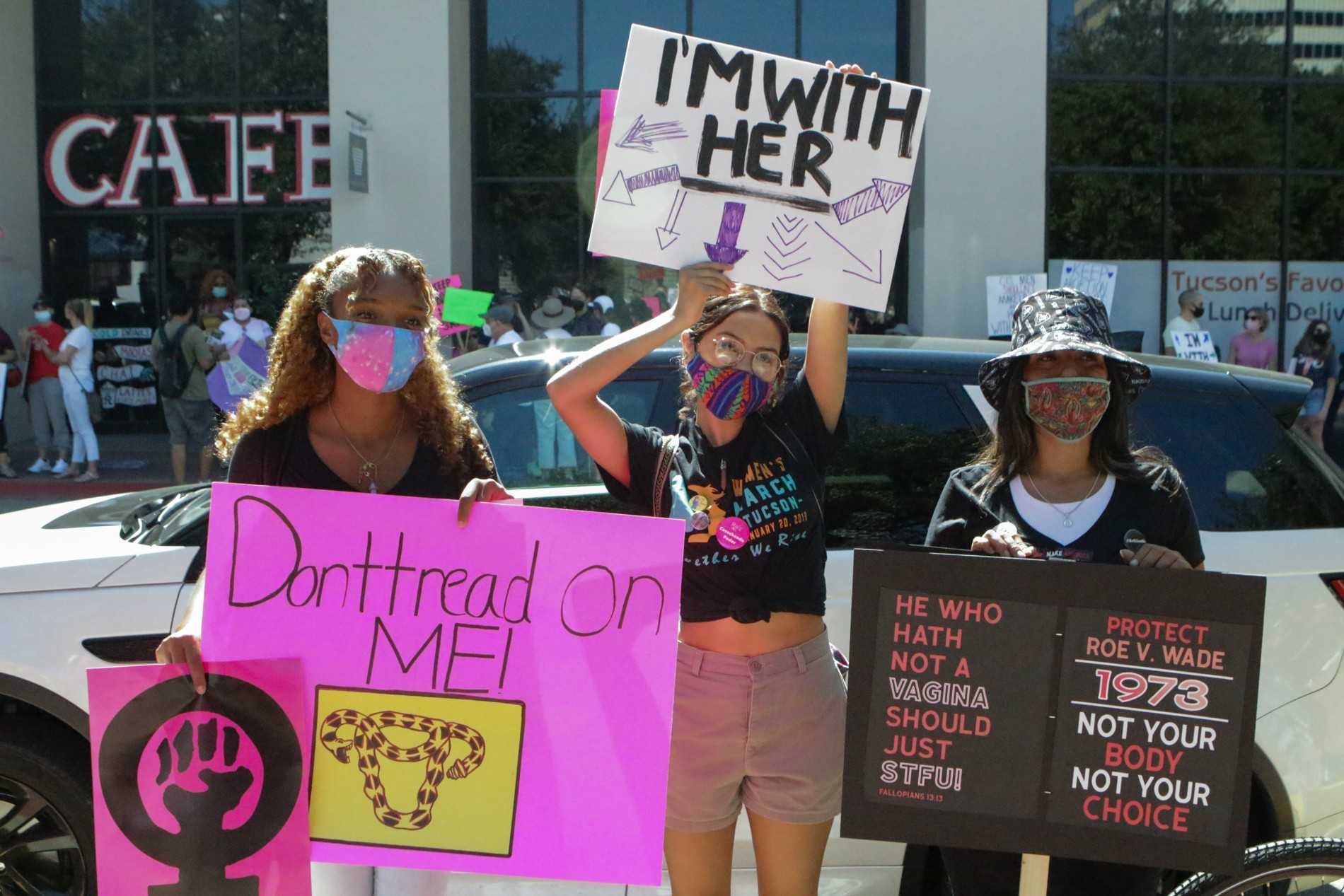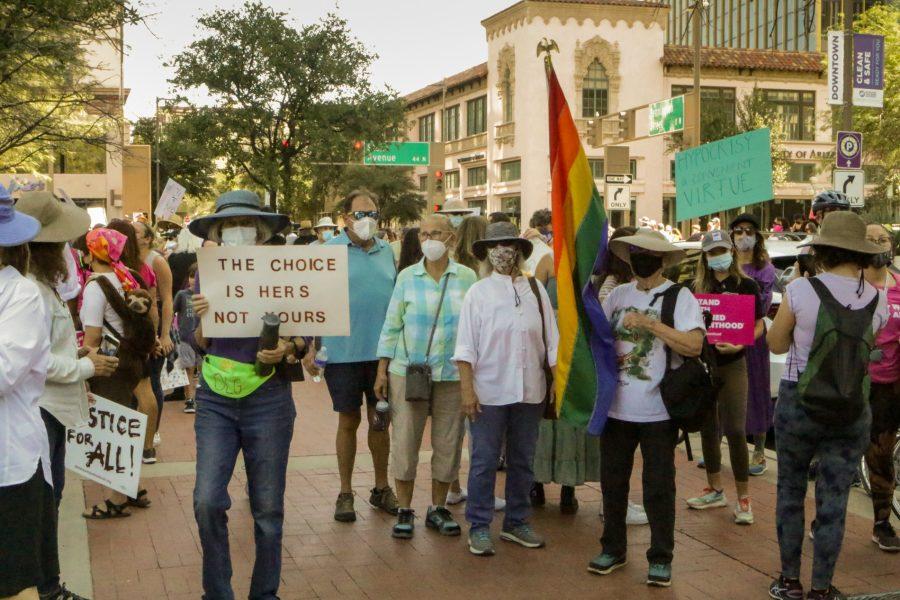“My body, my choice!”
That, among others, is the chant heard throughout downtown Saturday, Oct. 2, during the Women’s March in Tucson. It was organized in just under three weeks in response to Texas’ new abortion laws, which many found restrictive and a violation of women’s rights.
“As women in America our rights are currently being threatened, especially our right to access safe abortions,” said Gabi Saba, a sophomore at the University of Arizona majoring in political science and Arabic. “When you make abortions illegal, it doesn’t mean that abortions aren’t gonna happen anymore, it just means that women don’t have access to a safe medical procedure that should be considered part of healthcare.”
The protest started at Armory Park, where hundreds of people donned protest signs and wore shirts advocating for a woman’s right to have an abortion. The park was filled from end to end with women and men of all ages, toddlers, babies and even the occasional dog, all wearing masks — with a strict mask mandate for all being enforced by marshals monitoring the crowd — all except the dogs, of course.

“We want to be able to have the choice. Like, the fact that we’re still here today is absolutely insane,” said Amaya Ravenell, a freshman majoring in theatre and pre-elementary education at the UA.
Ravenell didn’t come alone. She was one of the many UA students to attend this event to show their support for women’s rights.
“I’m marching for anyone with a uterus, anyone that’s an ally, anyone,” said Chyler Waide, a freshman majoring in psychology. “Don’t touch me, don’t tell me what to do, none of that.”
The march continued down South Scott Avenue with marshals in neon yellow vests directing people where to go. At stoplights they held signs with ‘Go’ and ‘Stop’ on either side to direct the crowd through the downtown traffic. Opting out of using police force to monitor the march, the marshals were the guiding force behind the march’s smooth development.
“The primary thing there is that, unfortunately, there are a number of people in marginalized communities for whom police don’t signal increased safety,” said Amy Fitch-Heacock, the organizer of the event. “We really wanted to honor that and we really wanted to say ‘hey, we understand that we are organizing this quickly and we want to do this as a community, for our community, causing as little disruption as we possibly can.’”

The march ended in Jacome Plaza where marchers united, cheering on those still marching and chanting phrases encouraging women’s bodily autonomy and their reproductive rights.
“The real work starts after that, and our organization here in Tucson has already started to plan for what comes next, which is to mobilize this group of people who have agreed to march … to start asking for specific policy changes in our state and then to become more attuned to even our local elections and how that impacts reproductive justice,” Fitch-Heacock said. “Given the type of community we’ve attracted, I feel really strongly that this is going to be a movement as opposed to a moment.”
Follow Susan Barnett on Twitter









